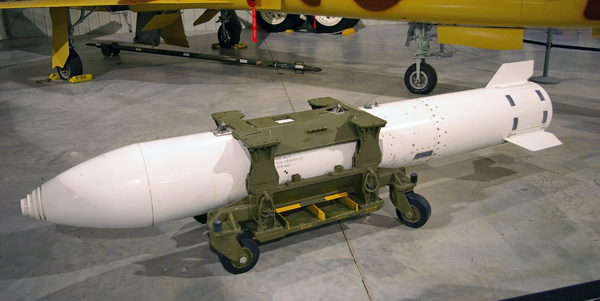Last week, the United States House Armed Services Committee adopted an amendment to the fiscal year 2013 national defence authorization bill calling for an examination of the re-deployment of US tactical nuclear weapons (TNW) in South Korea. Specifically, the amendment called upon the Obama administration to submit a report on the feasibility of re-introducing tactical nuclear weapons into the Korean peninsula – which had previously been stationed there for a large part of the Cold War - more than two decades after they were removed by President George H.W. Bush. These weapons had questionable military value during Cold War – much like their counterparts in Europe – and for a variety of strategic, political and diplomatic reasons - appear equally problematic now. It is not clear that such weapons would greatly mitigate threats from Pyongyang, or that they would make the region any more stable and secure. Perhaps more importantly, such a policy would do nothing to aid current discussions about removing U.S./ NATO tactical nuclear weapons from Europe, or for broader nuclear proliferation efforts being pursued by the White House.
There is little to suggest that the re-deployment of U.S. tactical nuclear weapons – presumably free-fall bombs delivered by nuclear capable aircraft – in Northeast Asia, would significantly modify North Korean behaviour, or increase overall regional security. In fact, it is not particularly clear that the South Korean government are entirely convinced by the wisdom of this plan - although the idea has never fully gone away amongst some military cadres in the capital, particularly when relations with the North become strained - or that a US.. ‘trip wire’ would make officials in Seoul more comfortable with a nuclear North Korea. Indeed, there is a strong case to be made that U.S. intentions – not least tactical nuclear deployments – were a key reason why North Korea sought a nuclear capability in the first place, while U.S. nuclear and conventional superiority is a key reason why they are so keen to hold on to them now. As such, a re-deployment seems likely to create more instability and concern in Pyongyang, which may make future nuclear testing and arms build ups by the transitioning regime a self-fulfilling prophecy. Moreover, such a move would appear to fundamentally undermine the move towards establishing a non-nuclear Korean peninsula, which has long been the goal of both the U.S. and South Korea, and likely create a set of unwanted nuclear complications (which will also include Japanese reactions) for the U.S. as it ‘pivots’ towards Asia-Pacific.
Last week, the United States House Armed Services Committee adopted an amendment to the fiscal year 2013 national defence authorization bill calling for an examination of the re-deployment of US tactical nuclear weapons (TNW) in South Korea. Specifically, the amendment called upon the Obama administration to submit a report on the feasibility of re-introducing tactical nuclear weapons into the Korean peninsula – which had previously been stationed there for a large part of the Cold War - more than two decades after they were removed by President George H.W. Bush. These weapons had questionable military value during Cold War – much like their counterparts in Europe – and for a variety of strategic, political and diplomatic reasons - appear equally problematic now. It is not clear that such weapons would greatly mitigate threats from Pyongyang, or that they would make the region any more stable and secure. Perhaps more importantly, such a policy would do nothing to aid current discussions about removing U.S./ NATO tactical nuclear weapons from Europe, or for broader nuclear proliferation efforts being pursued by the White House.
There is little to suggest that the re-deployment of U.S. tactical nuclear weapons – presumably free-fall bombs delivered by nuclear capable aircraft – in Northeast Asia, would significantly modify North Korean behaviour, or increase overall regional security. In fact, it is not particularly clear that the South Korean government are entirely convinced by the wisdom of this plan - although the idea has never fully gone away amongst some military cadres in the capital, particularly when relations with the North become strained - or that a US.. ‘trip wire’ would make officials in Seoul more comfortable with a nuclear North Korea. Indeed, there is a strong case to be made that U.S. intentions – not least tactical nuclear deployments – were a key reason why North Korea sought a nuclear capability in the first place, while U.S. nuclear and conventional superiority is a key reason why they are so keen to hold on to them now. As such, a re-deployment seems likely to create more instability and concern in Pyongyang, which may make future nuclear testing and arms build ups by the transitioning regime a self-fulfilling prophecy. Moreover, such a move would appear to fundamentally undermine the move towards establishing a non-nuclear Korean peninsula, which has long been the goal of both the U.S. and South Korea, and likely create a set of unwanted nuclear complications (which will also include Japanese reactions) for the U.S. as it ‘pivots’ towards Asia-Pacific.
Try unlimited access
Only $1 for four weeks
-
Unlimited access to all of NK News: reporting, investigations,
analysis
-
Year-one discount if you continue past $1 trial period
-
The NK News Daily Update, an email newsletter to keep you in
the loop
-
Searchable archive of all content, photo galleries, special columns
-
Contact NK News reporters with tips or requests for reporting
Get unlimited access to all NK News content, including original reporting,
investigations, and analyses by our team of DPRK experts.
Subscribe
now
All major cards accepted. No commitments – you can cancel any time.

